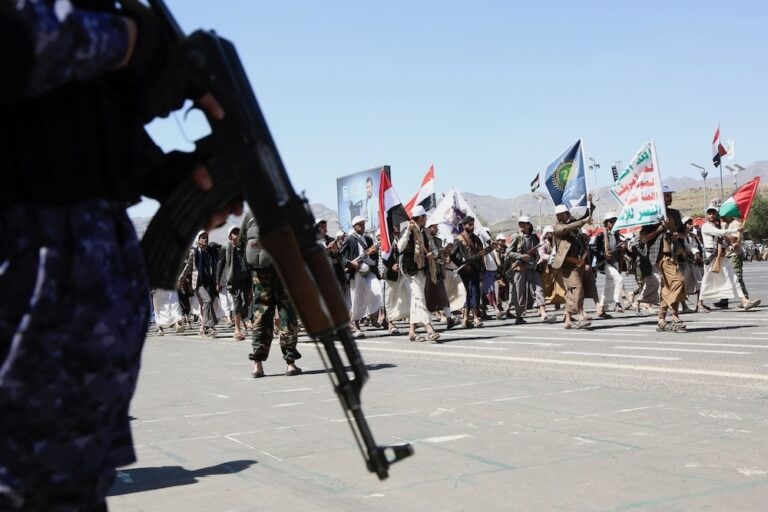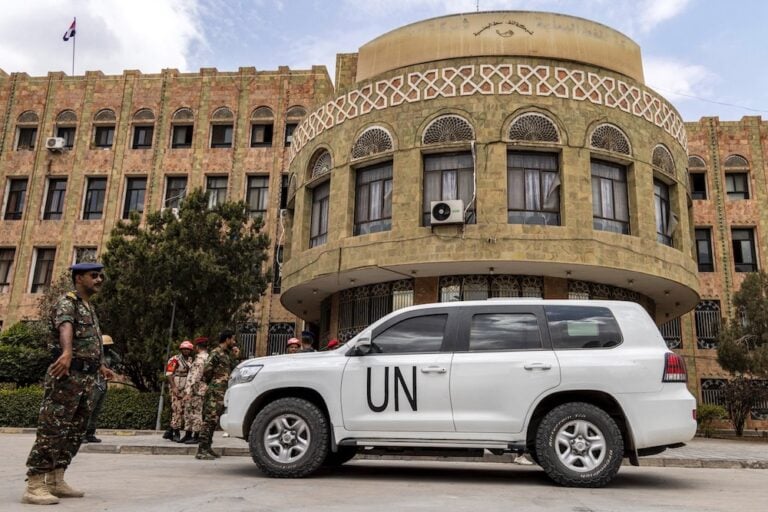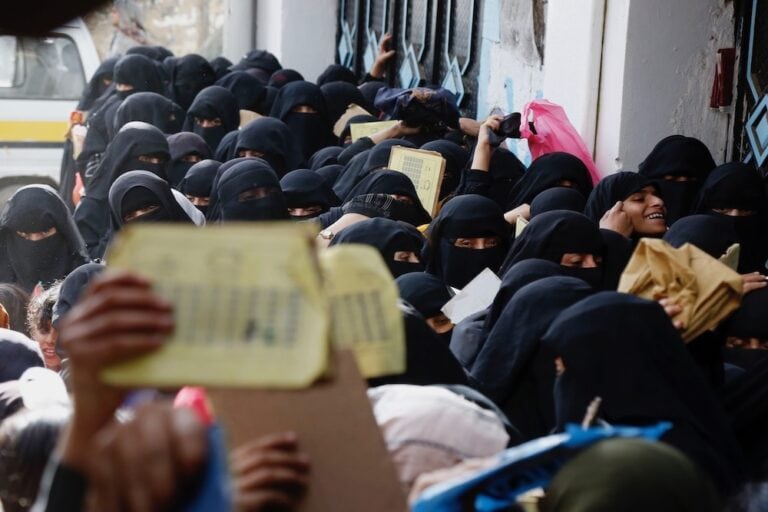(CPJ/IFEX) – The following is a CPJ press release: Attacks, Censorship, and Dirty Tricks A CPJ special report: In Yemen, press climate is deteriorating New York, March 9, 2006 – At least two dozen outspoken Yemeni journalists have been assaulted, imprisoned, or subjected to spurious criminal lawsuits in the past two years, signaling a dangerous […]
(CPJ/IFEX) – The following is a CPJ press release:
Attacks, Censorship, and Dirty Tricks
A CPJ special report: In Yemen, press climate is deteriorating
New York, March 9, 2006 – At least two dozen outspoken Yemeni journalists have been assaulted, imprisoned, or subjected to spurious criminal lawsuits in the past two years, signaling a dangerous escalation in the government’s crackdown on the country’s independent and opposition press, a new investigation by the Committee to Protect Journalists has found.
Witnesses and evidence point to involvement by government forces and state agents in a number of recent assaults, CPJ found in its special report, “Attacks, Censorship, and Dirty Tricks,” released today. The assailants remain at large, the government has shown little evidence it is seriously investigating, and public officials have not spoken out against the violence. Other journalists have faced intimidation by security forces and smears in the state-controlled press, CPJ found.
While at least seven newspapers have been closed by court or government order in the last year, suspected state agents have used trickery such as “cloning” to undercut other publications. “Cloned” newspapers are nearly identical in name and design to original publications, but they have a much different, pro-government editorial stance.
These cases come as the independent and opposition press has grown bolder in exposing high-level corruption and tackling sensitive political issues. Now, Yemen’s Parliament is debating a bill that would set out harsh new restrictions on the media. Journalists fear the measure could be used to silence critical voices in the run-up to presidential elections scheduled for September.
The developments have “fostered a climate of fear and intimidation for the press,” writes Joel Campagna, CPJ’s senior program coordinator for the Middle East and the author of the report. Campagna traveled to Yemen in January, along with CPJ board members David Marash of Al-Jazeera International and Clarence Page of the Chicago Tribune.
To read the report: http://www.cpj.org/Briefings/2006/yemen_3-06/yemen_3-06.html.
CPJ is a New York-based, independent, nonprofit organization that works to safeguard press freedom worldwide. For more information, visit http://www.cpj.org.


